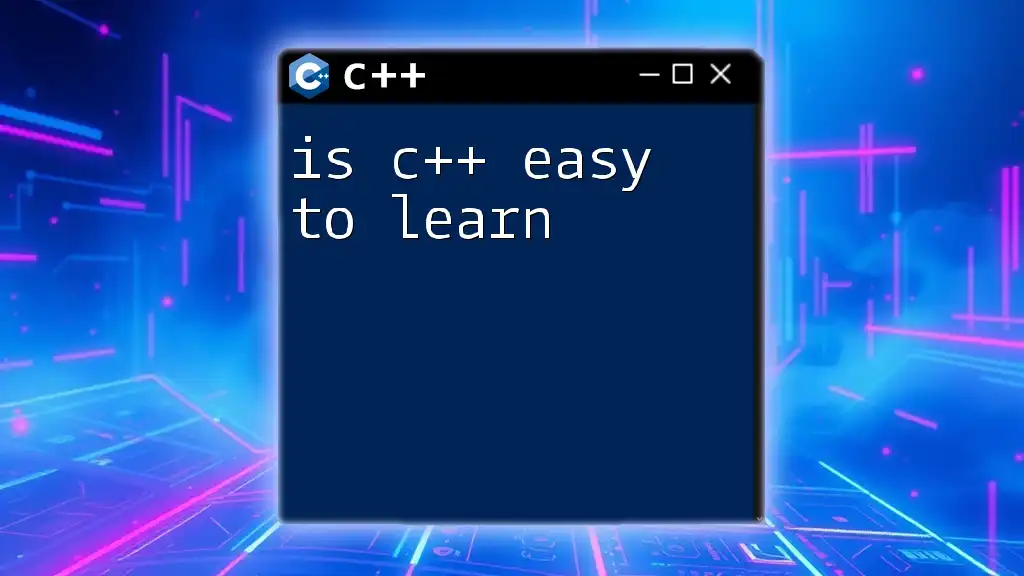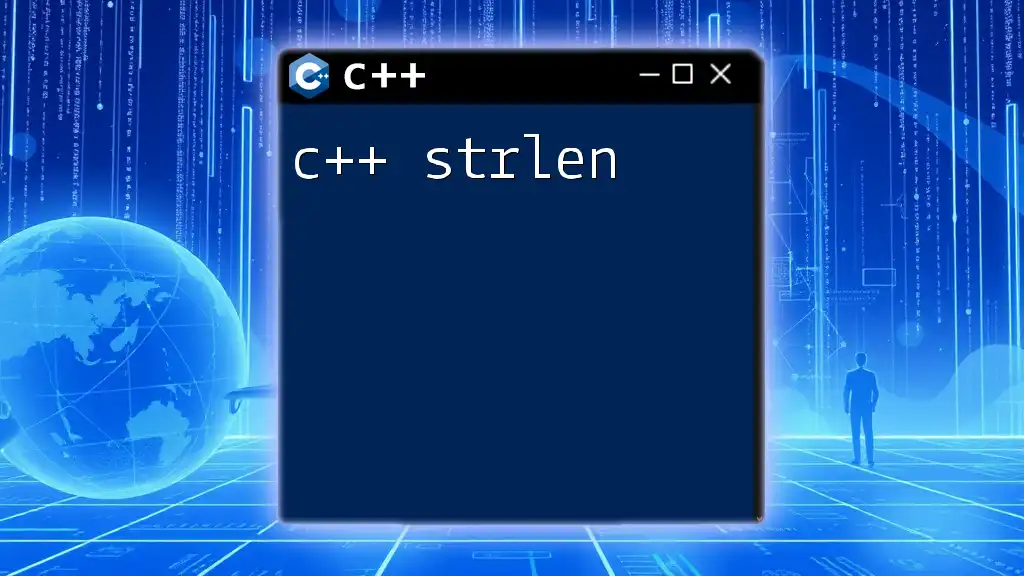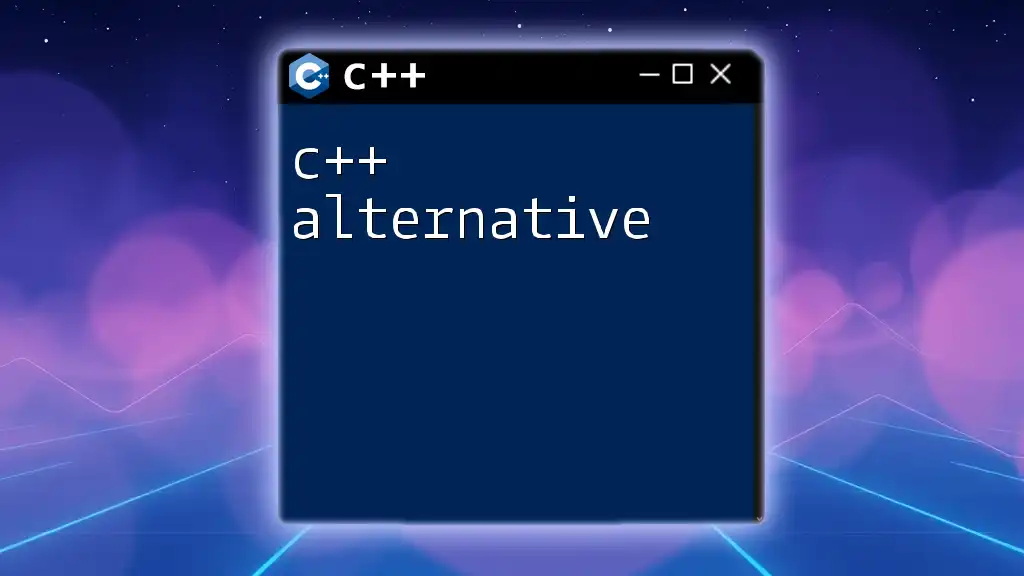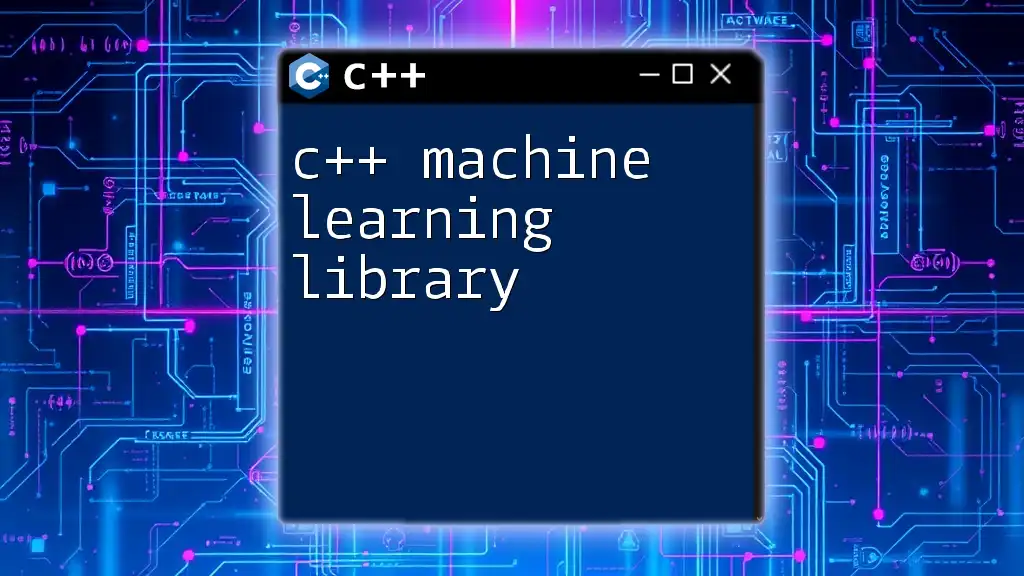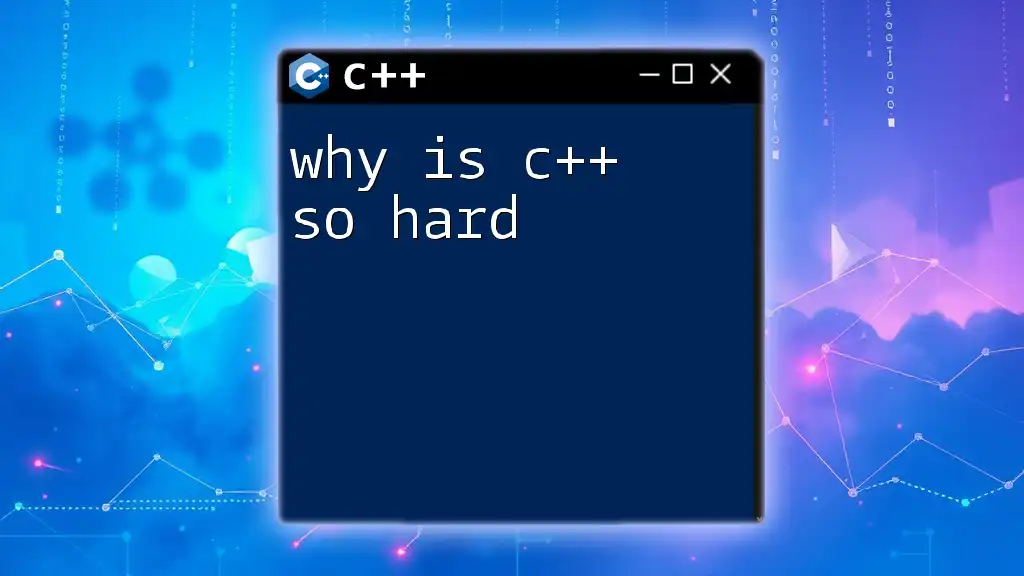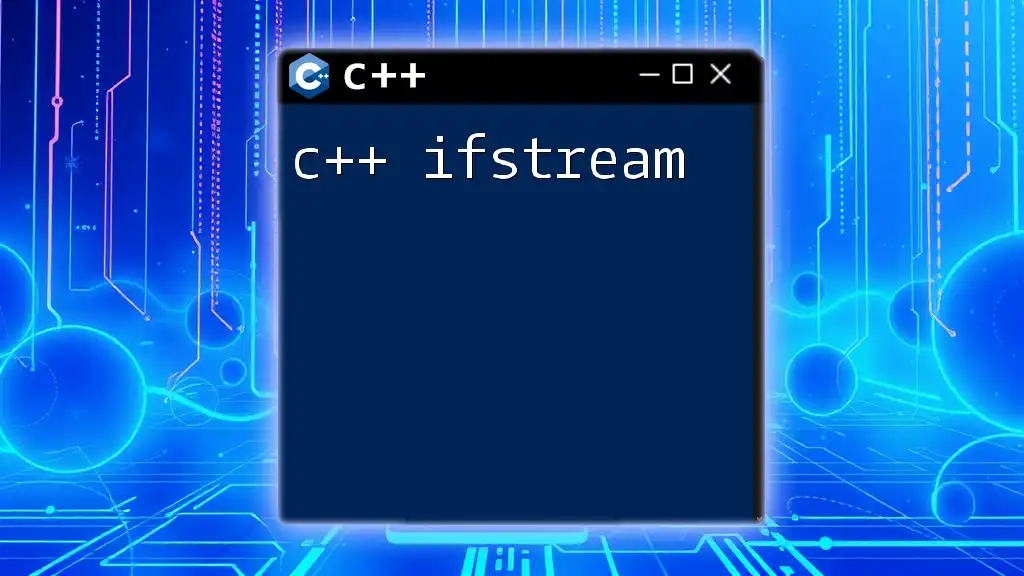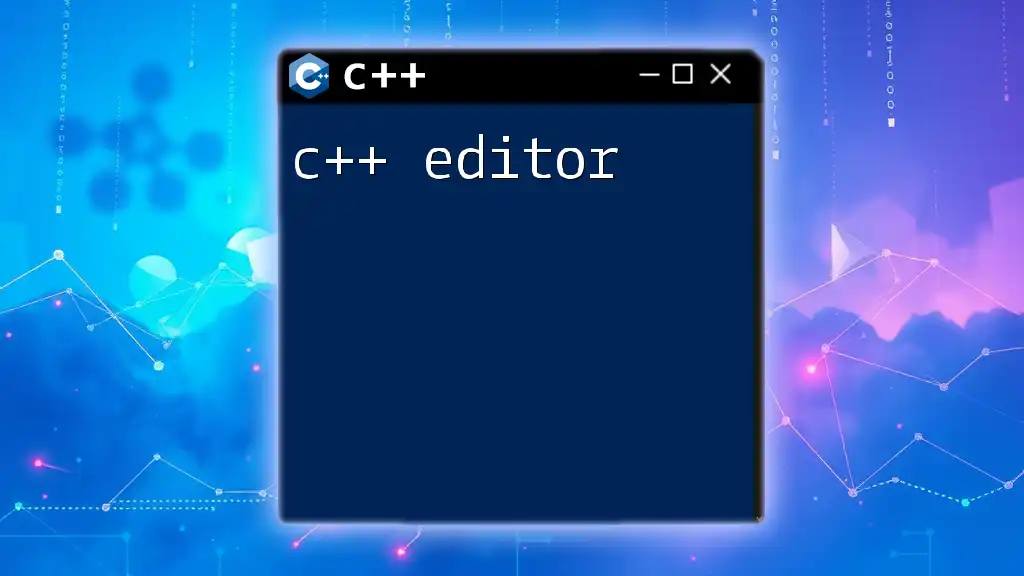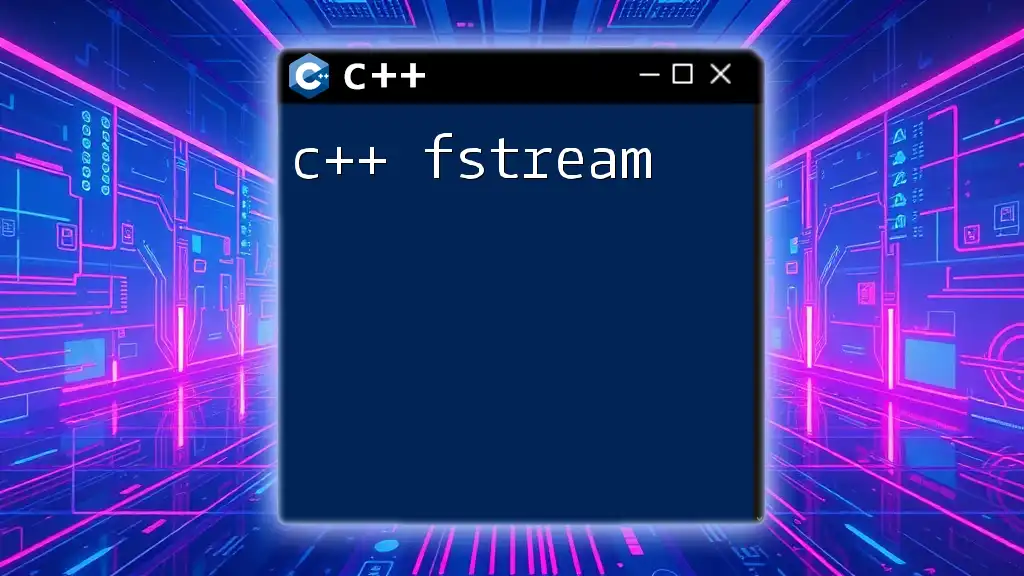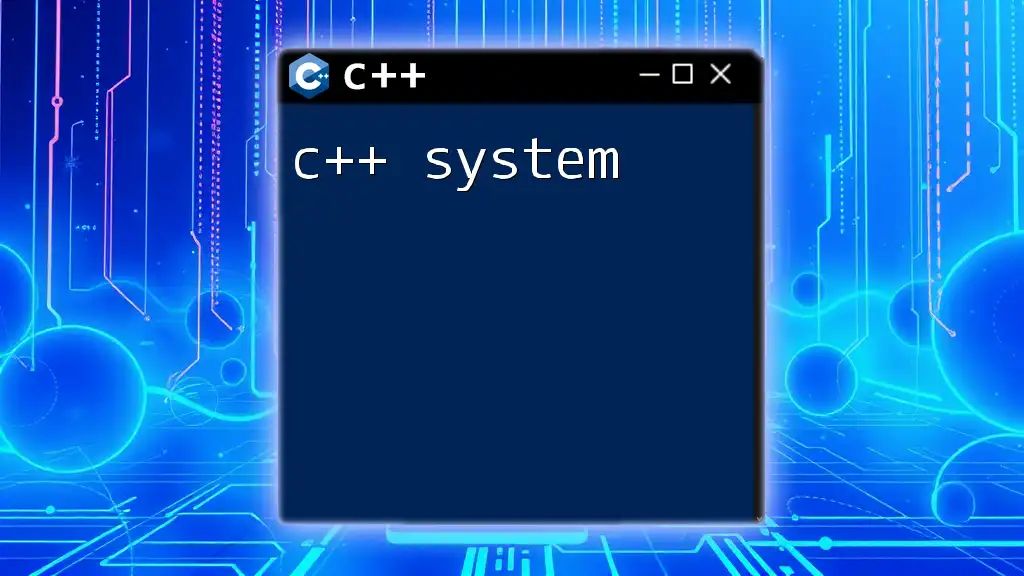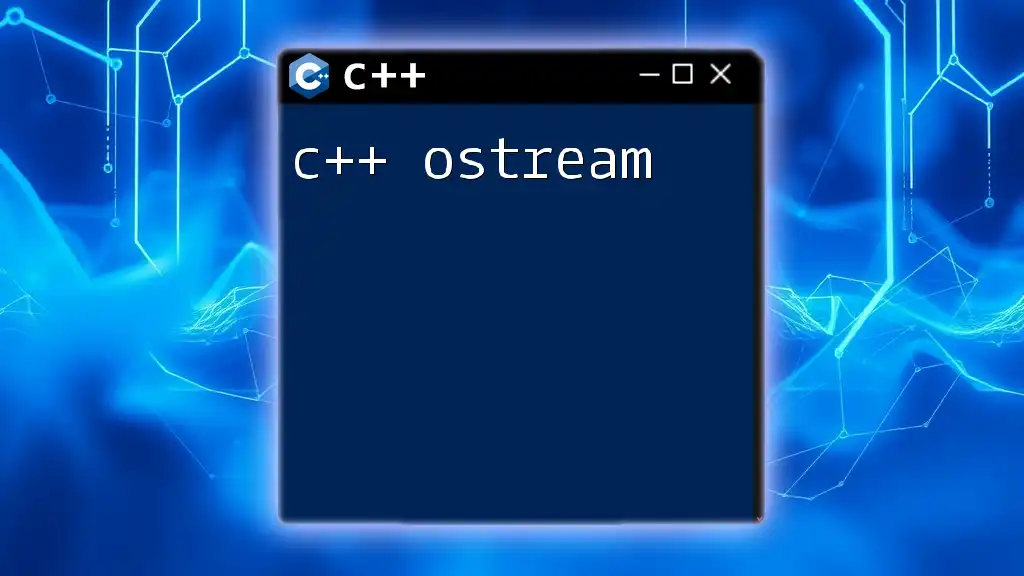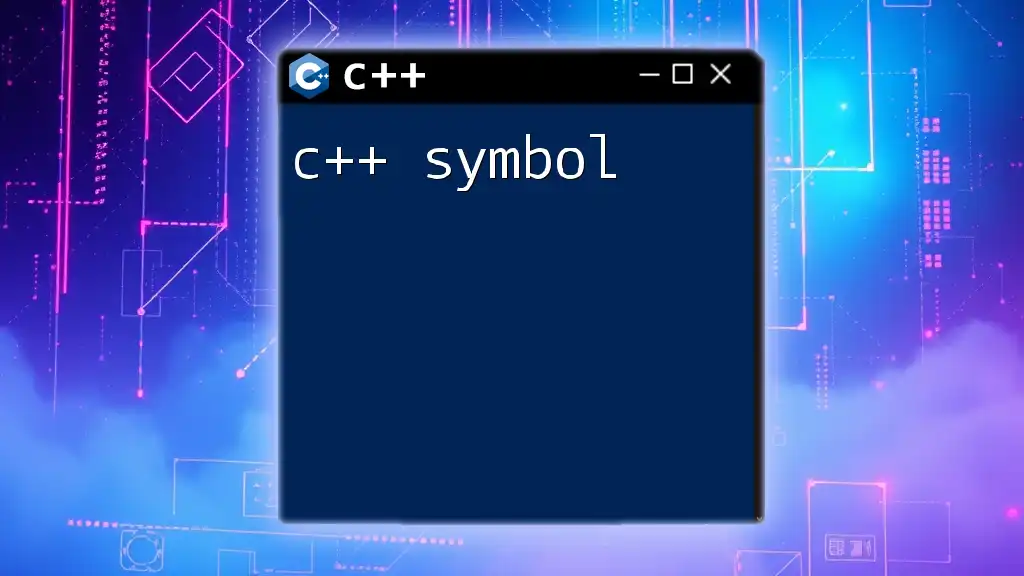C++ can be easy to learn for those with a basic programming background, as its syntax is straightforward and resembles other popular languages, making it approachable for newcomers.
Here is a simple code snippet to demonstrate a basic C++ program that outputs "Hello, World!" to the console:
#include <iostream>
int main() {
std::cout << "Hello, World!" << std::endl;
return 0;
}
Understanding C++
What is C++?
C++ is a general-purpose programming language that was developed by Bjarne Stroustrup in the late 1970s as an extension of the C programming language. It incorporates both low-level (hardware-level) and high-level features, making it versatile for various types of software development. C++ supports object-oriented programming (OOP), allowing developers to create classes, objects, and models that reflect real-world scenarios. Its key features include:
- Performance efficiency: C++ provides direct control over system resources.
- Rich library support: The Standard Template Library (STL) offers data structures and algorithms for efficiency.
- Wide applicability: From systems software to game development, C++ is widely used in multiple fields.
How C++ Compares to Other Languages
When considering whether C++ is easy to learn, it's beneficial to compare it to other languages.
- C: As the predecessor of C++, it shares a similar syntax but lacks advanced features like classes and object-oriented constructs, making C++ more complex yet powerful.
- Java: While Java offers a more straightforward syntax and automatic memory management, C++ grants developers greater control over memory, which can result in higher performance when managed well.
- Python: Known for its simplicity and readability, Python is easier for beginners. However, C++ provides deeper insights into system-level programming and performance optimization.
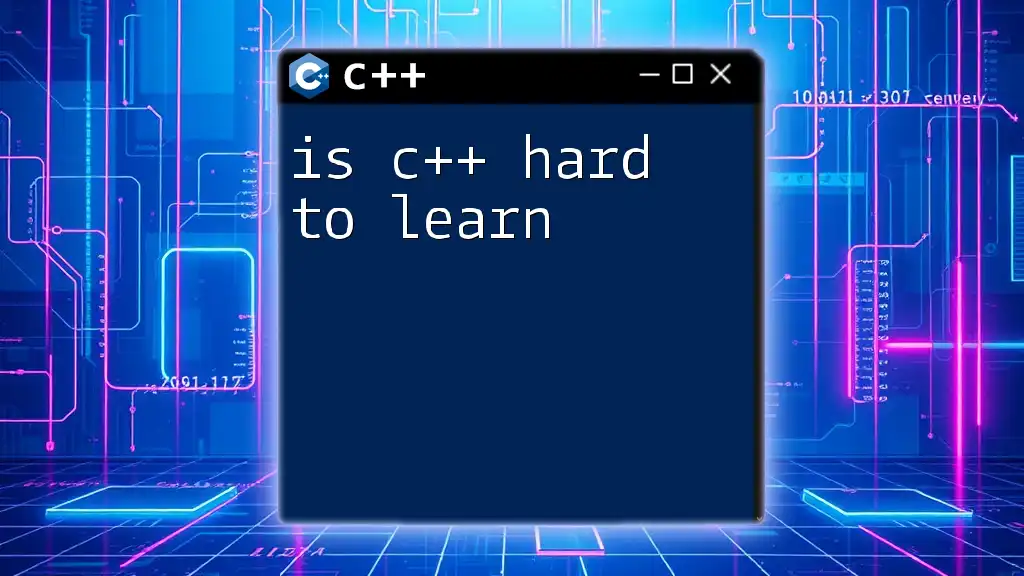
Factors That Influence Learning C++
Background Knowledge in Programming
A significant factor that affects the ease of learning C++ is your background knowledge. If you have previously worked with any programming languages, especially C or Java, you're likely to pick up C++ more quickly. Familiarity with programming concepts such as variables, control structures, and data types will help accelerate your learning process.
Learning Resources Available
Fortunately, the plethora of resources available today makes learning C++ more accessible than ever:
- Books: Titles like "C++ Primer" and "Effective C++" provide in-depth knowledge and best practices.
- Online Courses: Platforms such as Codecademy, Coursera, and Udacity offer structured courses that guide you through the basics to more advanced topics.
- Tutorials and Videos: YouTube channels and coding blogs can be excellent supplementary sources for visual learners.
Community and Support
Being a part of a supportive community can make learning C++ less daunting. Online platforms like Stack Overflow and Reddit have vast communities where you can ask questions, exchange knowledge, and find collaborators. Participating in mentorship programs or coding boot camps can further enhance your understanding through resource sharing and guidance.
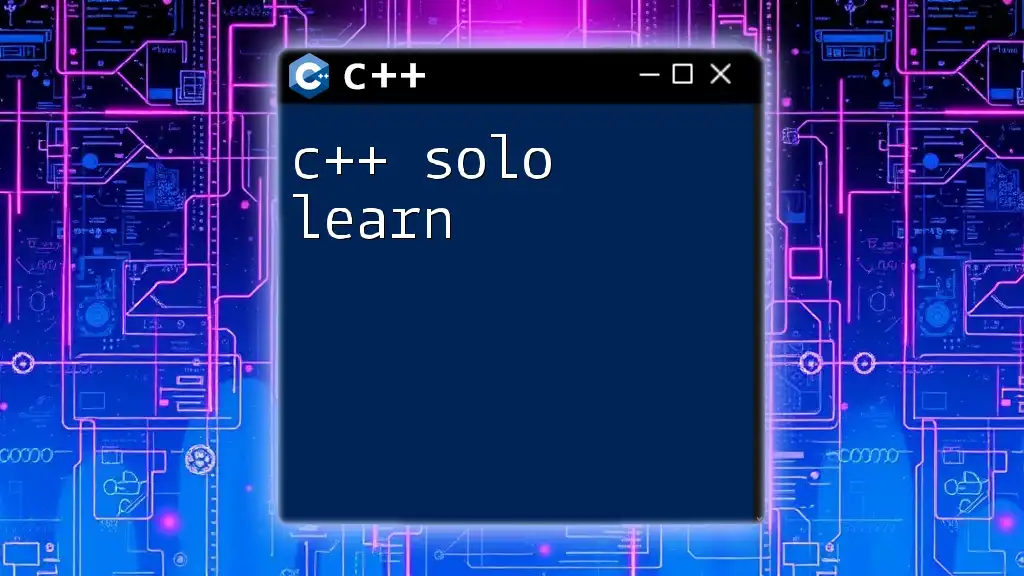
The Learning Curve of C++
Basic Concepts and Syntax
Diving into C++, you will encounter its foundational concepts that vary from other languages.
Variables and Data Types
Understanding variables and data types is crucial. In C++, you declare a variable by specifying its data type followed by its name:
int age = 25;
double salary = 50000.50;
In this snippet, `age` is an integer, and `salary` is a double, showcasing the stark differences in how data is handled.
Control Structures
Control structures, such as loops and conditional statements, guide the flow of your program. C++ syntax allows for various constructs to achieve this. For instance:
for(int i = 0; i < 10; i++) {
std::cout << i << std::endl;
}
This for loop prints the numbers 0 through 9. Understanding these basic constructs lays the foundation for more complex logic.
Intermediate Concepts
As you progress, you'll encounter intermediate concepts that further delve into the language's flexibility.
Functions and Scope
Functions in C++ are reusable blocks of code that perform specific tasks. They can take parameters and return values, which help organize complex problems into manageable parts:
int add(int a, int b) {
return a + b;
}
This example illustrates a simple function that adds two integers, reinforcing your understanding of function structure and variable scope.
Object-Oriented Programming
With its object-oriented features, C++ allows developers to create models that mirror real-world entities. A simple example of classes and inheritance can be seen here:
class Animal {
public:
void speak() { std::cout << "Roar"; }
};
class Dog : public Animal {
public:
void speak() { std::cout << "Bark"; }
};
In this case, `Dog` inherits from `Animal`, demonstrating the power and flexibility of OOP.
Advanced Concepts
Once you're comfortable with intermediate concepts, advanced features will open up new vocabularies in your programming repertoire.
Pointers and Memory Management
Understanding pointers is essential in C++. They provide a way to access and manipulate memory directly, though they introduce complexity and potential pitfalls, such as memory leaks:
int* ptr = new int;
*ptr = 10;
delete ptr;
In this example, memory is dynamically allocated, and proper management through `delete` is necessary to prevent resource drain.
Templates and the Standard Template Library (STL)
Templates enable you to create generic functions or classes without needing to specify a data type, enhancing code reusability:
template <typename T>
T add(T a, T b) {
return a + b;
}
This function works with any data type, demonstrating C++’s flexibility and power in handling various types safely.
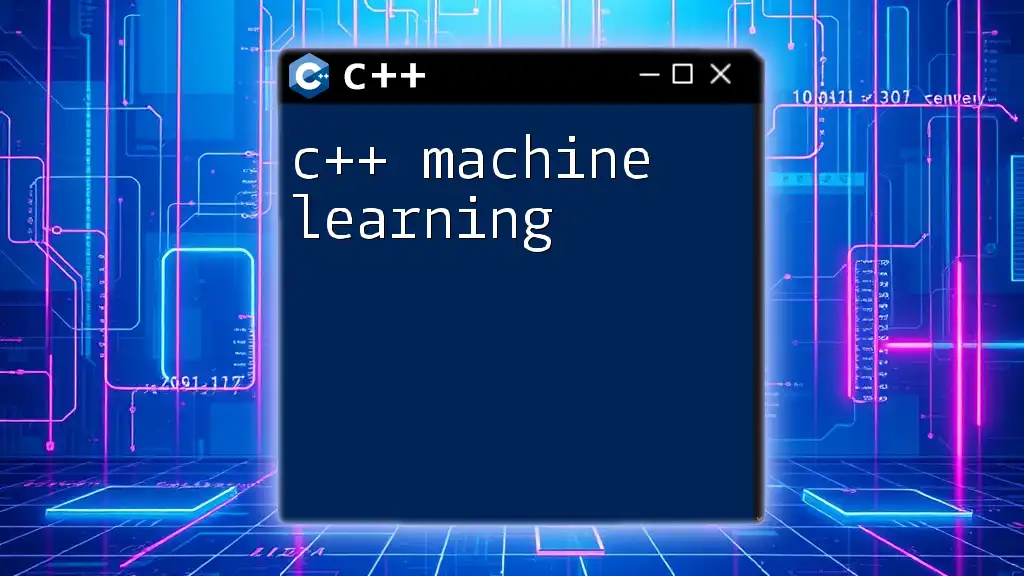
Common Misconceptions About Learning C++
Complexity vs. Capability
It's easy to dismiss C++ as overly complex, but this complexity grants powerful capabilities. Many misconceptions stem from the challenges associated with memory management and syntax. While these aspects may seem daunting, mastering them opens a world of performanceoptimization in your programming tools.
The Myth of C++ Being Obsolete
Contrary to the belief that C++ is an outdated language, it remains relevant and widely used across different industries. Companies in gaming, finance, and embedded systems continuously rely on C++ for its high performance and control over system resources.
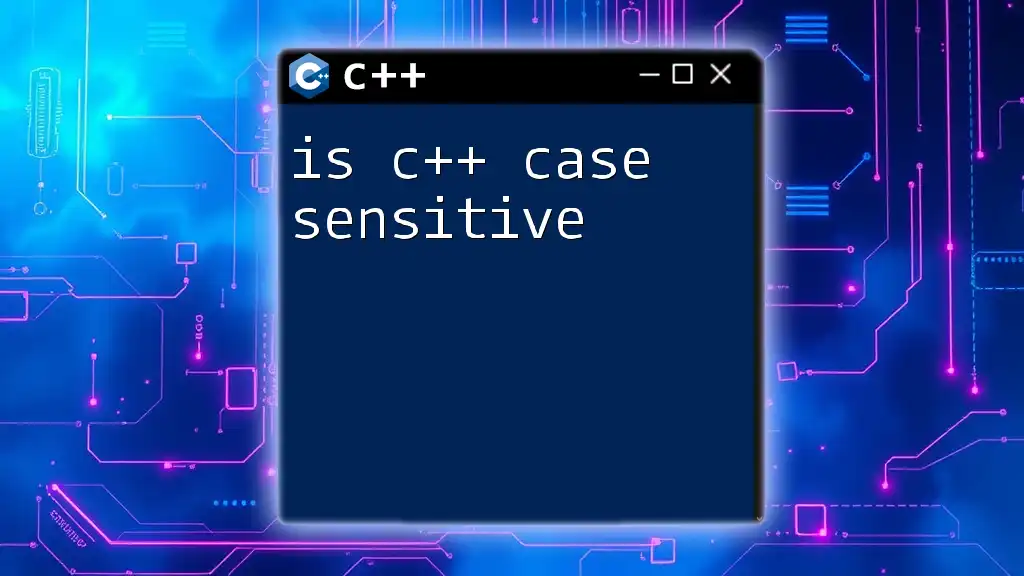
Tips for Efficient Learning in C++
Practice Makes Perfect
There's no substitute for practice. To truly grasp C++, engage in regular coding exercises. Websites like LeetCode and HackerRank provide coding challenges suited for all levels.
Develop Real-World Projects
Creating real-world projects is a productive way to solidify your C++ knowledge. Start with simple applications, like calculators or basic games, and gradually embark on more complex systems to thoroughly test what you learn.
Seek Help and Collaborate
Collaborating with others in your learning journey can provide new insights and facilitate deeper understanding. Join study groups or programming forums, and don't hesitate to seek mentorship from experienced developers.
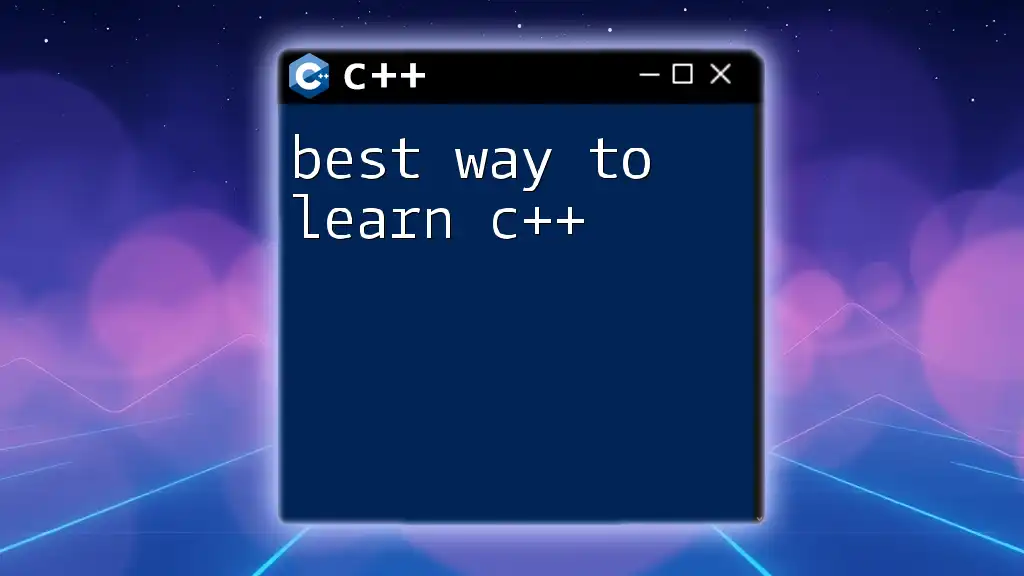
Conclusion
In conclusion, whether C++ is easy to learn largely depends on your background, the resources you leverage, and your willingness to tackle its unique challenges. With diligent effort and the right support system, anyone can conquer the complexities of C++. Don’t hesitate to embark on this journey and explore the versatility and power that C++ has to offer. Join our platform today for guided learning and to connect with a passionate community of learners and experts.
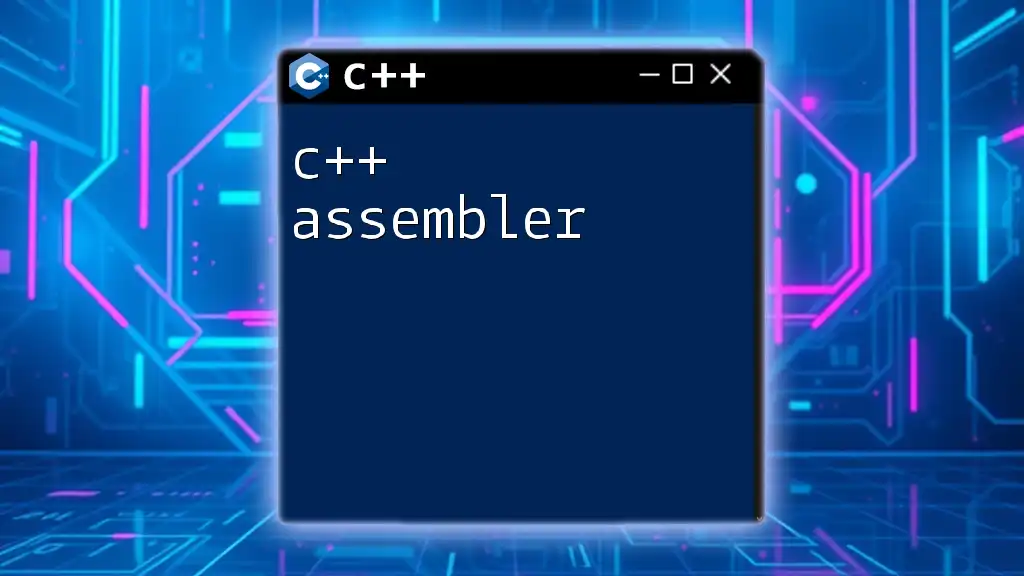
Additional Resources
For continued learning, consider diving into recommended books, websites, and online courses tailored to deepen your understanding of C++. Subscribe for updates and enriching materials designed to enhance your learning experience.

